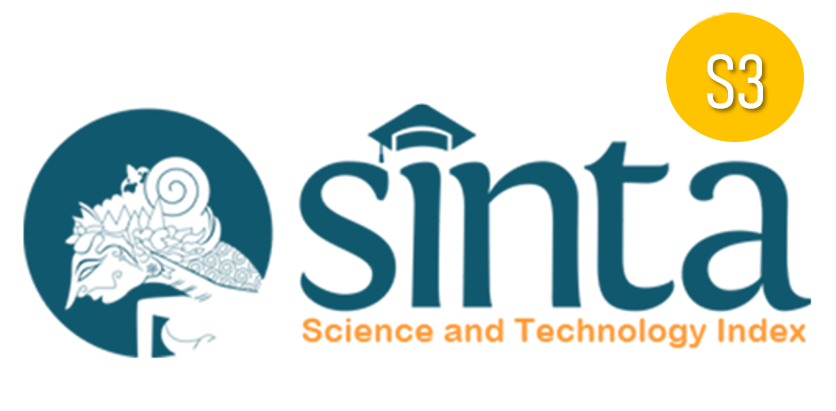The Digital Frontier: AI-Enabled Transformations in Higher Education Management
Abstract
Keywords
Full Text:
PDFReferences
Agustina, S., and Nandiyanto, A. B. D. (2021). The effectiveness of distance learning using learning management system media and whatsapp groups at senior high school. Indonesian Journal of Multidiciplinary Research, 1(1), 89-98.
Ajijola, E. M., Ogunlade, O. O., and Aladesusi, G. A. (2021). The attitude of distance learners towards the utilization of learning management system (a case study of national open University of Nigeria). Indonesian Journal of Teaching in Science, 1(1), 53-62.
Al Husaeni, D. N., and Hadianto, D. (2022). The influence of spada learning management system (LMS) on algorithm learning and programming of first grade students at Universitas Pendidikan Indonesia. Indonesian Journal of Multidiciplinary Research, 2(1), 203-212.
Boakye, K. G., Banini, D. A., and Oduro, G. K. T. (2020). AI in Africa - education and the way forward. Advances in Intelligent Systems and Computing, 1103, 188-200.
Eynon, R. (2018). The fight for digital competence: What can we learn from the international computer and information literacy study?. Learning, Media and Technology, 43(3), 310-324.
Farxod, T. (2023). ASEAN journal of educational research improving the methodology of preparing the future technology teacher for professional activity in the information education environment. ASEAN Journal of Educational Research and Technology, 2(3), 201–210.
Fayzievna, H. M. (2012). Ways Of Professional training of children with the limited opportunities. Social and Natural Sciences Journal, 4, 5-6.
Floridi, L., and Taddeo, M. (2016). What is data ethics?. Philosophical Transactions of the Royal Society A, 374(2083), 1-5.
Hakimova, M. F. (2018). The importance of modular training in improving economic literacy. Актуальные проблемы гуманитарных и социально-экономических наук, 12(9), 32-33.
Hershkovitz, A., and Forkosh-Baruch, A. (2013). Student data mining: Identifying key transitional moments and short-term paths of at-risk students. Journal of Educational Data Mining, 5(1), 190-215.
Hodges, J., Ozbek, A., Islamova, Z., and Sultanova, N. (2021). A scoping review of artificial intelligence in healthcare in Central Asia. International Journal of Medical Informatics, 147, 104363-1 – 104363-6.
Hook, D., Porter, S.J., and Herzog, C. (2018). Dimensions: Building context for search and evaluation. Frontiers in Research Metrics and Analytics, 3, 1-11.
Jakhongir, S., Khayrilla, K., Muhabbat, H., and Salim, K. (2023). analyzing climate policy utilizing financial and energy industry models. ASEAN Journal of Economic and Economic Education, 2(2), 125–138.
Kizilcec, R. F., Saltarelli, A. J., Reich, J., and Cohen, G. L. (2020). Closing global achievement gaps in MOOCs. Science, 355(6322), 251-252.
Kurbanov, R., and Juraev, S. (2021). Transformation of Uzbekistan telecom industry. Central Asian Journal of Management, Economics, and Social Research, 1(1), 50-55.
Lee, S. W. Y., Liu, C. L., and Chen, Y. L. (2016). Digital game-based learning to improve students' learning in mathematics: A case study for elementary school. International Journal of Grid and Distributed Computing, 9(7), 11-20.
Lovett, J., Bajjaly, S., and Gould, J. (2019). Predictive modeling for annual giving and major gift fundraising: A case study. Journal of Nonprofit and Public Sector Marketing, 31(1), 1-15.
Makridakis, S. (2017). The forthcoming Artificial Intelligence (AI) revolution: Its impact on society and firms. Futures, 90, 46-60.
Muhabbat, H., Jakhongir, S., Farxod, T., and Khulkar, K. (2023). Modernization of management system of higher education institutions: an empirical perspective from Uzbekistan. ASEAN Journal of Economic and Economic Education, 3(2), 297–306.
Oztemel, E., and Gursev, S. (2020). Literature review of Industry 4.0 and related technologies. Journal of Intelligent Manufacturing, 31(1), 127-182.
Patton, M. Q. (2002). Two decades of developments in qualitative inquiry: A personal, experiential perspective. Qualitative Social Work, 1(3), 261-283.
Prusty, S., Kodali, R., and Bhattacharya, M. (2019). A study on current status, opportunities and challenges of ai in indian higher education. Advances in Intelligent Systems and Computing, 810, 299-308.
Riyanto, M., Nandiyanto, A. B. D., Kurniawan, T., and Bilad, M. R. (2022). Management of character education in the scope of elementary school students in the distance learning period. Indonesian Journal of Multidiciplinary Research, 2(1), 1-8.
Shaturaev, J. (2023a). Amendment of higher education institution quality assurance. Indonesian Journal of Multidisciplinary Research, 3(1), 175–180.
Shaturaev, J. (2023b). Leading-edge strategies for enhancing higher education institutions' management systems. Indonesian Journal of Teaching in Science, 3(1), 59-66.
Shaturaev, J., and Khamitovna, K. K. (2023). A computer-based approach to teaching foreign languages. ASEAN Journal of Educational Research and Technology, 2(2), 89–98.
Shermatov, K., Yuldashev, F., and Ismailova, R. (2020). The perspectives of using artificial intelligence in education: The case of Uzbekistan. Innovations in Intelligent Systems and Computing, 1131, 500-513.
Tulasi, B., and Rambhia, S. (2018). Predictive analysis of course demand for efficient course offering in colleges. International Journal of Artificial Intelligence and Applications, 9(1), 1-11.
Ursachi, G., Horodnic, I. and Zait, A. (2015). How reliable are measurement scales? External factors with indirect influence on reliability estimators. Procedia Economics and Finance, 20, 679-686.
DOI: https://doi.org/10.17509/ijert.v4i1.60367
Refbacks
- There are currently no refbacks.
Copyright (c) 2023 Universitas Pendidikan Indonesia (UPI)

This work is licensed under a Creative Commons Attribution-ShareAlike 4.0 International License.







.png)




